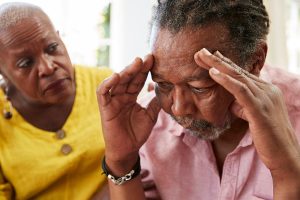For most people, wearing a face mask to protect against COVID-19 doesn’t lead to a false sense of security that leads them to forgo other precautions like hand washing, a new study finds.
Although it’s not clear how protective face masks are, scientists and policymakers are urging people to use them. The World Health Organization, however, has been concerned that face masks could “create a false sense of security that can lead to neglecting other essential measures such as hand hygiene practices.”
But how often does that happen?
To find out, a British team led by Dr. Theresa Marteau at the Behavior and Health Research Unit at the University of Cambridge, looked at the evidence to see if those concerns might be real.
They looked at “risk compensation,” which is when people have a level of risk they are comfortable with and they adjust their behavior to maintain that level of risk.
The review of 22 published studies with more than 2,000 households found that wearing masks does not reduce the frequency of hand-washing.
In fact, two studies found the rates of hand-washing were higher in the groups wearing masks, the researchers noted.
Also, in three observational studies, the researchers found that people tended to stay clear of those wearing masks, which suggests that face masks actually increase physical distancing. But these studies were not peer-reviewed and should not be considered definitive.
“The concept of risk compensation, rather than risk compensation itself, seems the greater threat to public health through delaying potentially effective interventions that can help prevent the spread of disease,” Marteau said in a Cambridge news release.
“Many public health bodies are coming to the conclusion that wearing a face covering might help reduce the spread of SARS-CoV-2, and the limited evidence available suggests their use doesn’t have a negative effect on hand hygiene,” said researcher Dr. James Rubin, from the department of psychological medicine at King’s College London.
The report was published recently in the journal BMJ Analysis.
More information
For more on COVID-19 and face masks, head to the U.S. Centers for Disease Control and Prevention.
Source: HealthDay
Copyright © 2025 HealthDay. All rights reserved.

















